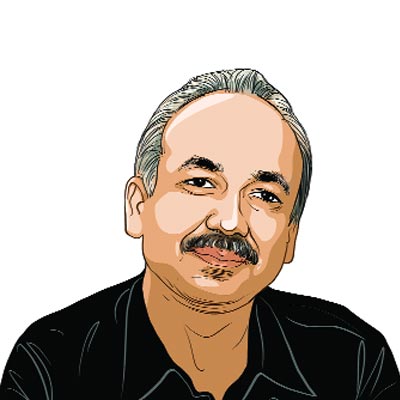Nepal crisis deepens: Protesters split, President looks within, Nepal waits for new Govt
President Ram Chandra Poudel insisted that any solution to the current stalemate must be found under the existing Constitution.
Uncertainty over the formation of an interim government in Nepal following the fall of the K P Sharma Oli government deepened Thursday with Gen Z protest groups divided on who should hold the temporary reins of power, and President Ram Chandra Poudel insisting that any solution to the current stalemate must be found under the existing Constitution.
The President’s stance complicates efforts by Nepal Army chief General Ashok Raj Sigdel to ensure an interim dispensation takes charge soonest. A day earlier, General Sigdel had asked former Chief Justice Sushila Karki to step in as the interim Chief Executive, an offer that she accepted after much persuasion and a formal statement from some of the Gen Z groups.
Nepal’s current Constitution does not allow any former Chief Justice or Supreme Court judge to become President or Prime Minister or hold any other political or constitutional post upon retirement. Karki retired in June 2017.
President Poudel said a way out of the stalemate was possible under the existing Constitution, and must be pursued further.
His assertion is being seen as a move to protect the existing political system and the Constitution in a highly polarised environment. At least four major parties – the CPN (Maoist Centre), Nepali Congress, CPN (UML) and Madesh-centric groupings – have endorsed his call.
India’s immediate concern is early restoration of peace and stability in Nepal since they share an open and porous border — thousands work and live in both countries. Delhi is also engaged with the Nepal Army which is making efforts to bring in place an interim government after the fall of the Oli government.
Poudel’s statement flies in the face of General Sigdel’s efforts to bring multiple Gen Z groups and other leaders to the table to facilitate the formation of a government not led by a leader of any existing political party.
If the President’s move succeeds, the issue will return to Parliament where the coalition of the Nepali Congress and the CPN (UML) – the ruling alliance until Oli stepped down as Prime Minister two days ago following violent protests in which leaders were singled out and assaulted – enjoy a majority. This increases the chance of the return of Oli or his nominee since he has not yet resigned as leader of the parliamentary party.
The move to save the Constitution and Parliament comes amid confusion and division within the Gen Z grouping – it does not have any formal structure or chain of command, and multiple groups are pushing forward different prescriptions.
Despite showing signs of unity to save the existing Constitution, leaders of major political parties have started a blame game over the killing of 20 protesters and destruction of public property.
Oli blamed the violence on anti-social elements and criminals who, he claimed, had infiltrated the Gen Z groups. But Maoist chief Pushpa Kamal Dahal ‘Prachanda’ put the blame squarely on the ruling coalition of the CPN (UML) and Nepali Congress. “Together, they dislodged my government 14 months ago when I began taking drastic measures against corruption,” he said.
Oli also alleged that there could have been an external role against him. “I put Lipulekh, Limpiyadhura on our country’s map, where they actually belong. And I asserted Lord Ram was born in Nepal and I refused to yield to any pressure from outside,” he said.
In May 2020, the Oli government, scaling up its row with India over territorial claims to the Lipulekh-Kalapani-Limpiyadhura triangle at the trijunction of Nepal, India and China (Tibet), brought a Constitution amendment Bill to give legal sanctity to Nepal’s new map. It was published by the government after India inaugurated a new road via Lipulekh on the Mansarovar Yatra trail.
Meanwhile, Kathmandu Mayor Balendra Shah ‘Balen’, who commands sizable support among the Gen Z groups, has backed the idea of dissolution of Parliament and appointment of former Chief Justice Karki as head of the interim government.
